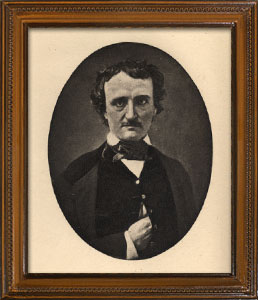In the book. Levy takes awhile to make her assertive and ridiculously radical point. About halfway through, when she began to bitterly quote Camille Paglia and raise up the confused and ultimately divisive figures that we know today as "feminists" (Gloria Steinem: "A woman without a man is like a fish without a bicycle;" Susan Brownmiller: "It is a horrible truth, but the one thing we know now, that men didn't want us to know twenty, thirty, forty years ago is that it is not our fault. It is their fault."), I suddenly became very anxious about where Levy was going with this and what exactly her ultimate conclusion would be.

It's nice to look back on your future with a book and be able to say, "We had some tough times, book, but in the end, you gave me what I wanted and never expected! Thank you!" Levy moved on from the awkward discourse about "The Future that Never Was" and back on track with her message. (Before clicking the links included in the following sentence, make sure you are ready for a serious delving into the heart of the beast. In other words, those links are not work safe). She discusses the Girls Gone Wild creation, the inception and prolonging of Playboy, and the sexual fervor exhibited (quiet literarlly) by a group called CAKE. After she jumps head first into this cream-corn wrestling tub, Levy becomes emboldened by her ideals, and comes down fully on the whole concept of Raunch Culture as some sort of liberation. Some of my favorite quotes from the book:
On the radical shift in young girls to vie for position of the "most skankiest" rather than be embarrassed by sexuality: Adolescents are not inventing this culture of exhibitionism and conformity with their own fledgling creative powers. Teens are reflecting back our slobbering culture in miniature(146).
On abstinence-only sex education: If I, as an adult, find this kind of educational exercise unconvincing, shame-inducing, and lame, imagine how well it works to influence the impulse control of the average teenager, who (I like to think) is less rational, less self-aware, and more hormonal. In addition to being laced with misogyny (do you want to be defiled like Miss Tape or do you want to be a nice, clean, thin virgin?), the abstinence-only approach has the disadvantage of being unrealistic(160).
A quote from Erica Jong, author of Fear of Flying: I would be happier if my daughter and her friends were crashing through the glass ceiling instead of the sexual ceiling. Being able to have an orgasm with a man you don't love or having "Sex and the City" on television, that is not liberation. If you start to think about women as if we're all Carrie on "Sex and the City," well, the problem is: You're not going to elect Carrie to the Senate or to run your company. Let's see the Senate fifty percent female; let's see women in decision-making positions--that's power. Sexual freedom can be a smoke-screen for how far we haven't come(195).
On abstinence-only sex education: If I, as an adult, find this kind of educational exercise unconvincing, shame-inducing, and lame, imagine how well it works to influence the impulse control of the average teenager, who (I like to think) is less rational, less self-aware, and more hormonal. In addition to being laced with misogyny (do you want to be defiled like Miss Tape or do you want to be a nice, clean, thin virgin?), the abstinence-only approach has the disadvantage of being unrealistic(160).
A quote from Erica Jong, author of Fear of Flying: I would be happier if my daughter and her friends were crashing through the glass ceiling instead of the sexual ceiling. Being able to have an orgasm with a man you don't love or having "Sex and the City" on television, that is not liberation. If you start to think about women as if we're all Carrie on "Sex and the City," well, the problem is: You're not going to elect Carrie to the Senate or to run your company. Let's see the Senate fifty percent female; let's see women in decision-making positions--that's power. Sexual freedom can be a smoke-screen for how far we haven't come(195).
The book is fascinating in its depth, conclusions, and creative nonfiction stories. Ultimately, Levy boils the whole mess down to one simple idea: since we are all individuals, how can we expect this one simple and plastic image of female sexuality to even come close to liberation, let alone express the sexuality of women as a whole? As she states, Women's liberation and empowerment are terms feminists started using to talk about casting off the limitations imposed upon women and demanding equality. We have perverted these words. The freedom to be sexually provocative or promiscuous is not enough freedom; it is not the only "women's issue" worth paying attention to.
Well said. Might I recommend that after you read Levy's book, stress this issue to the publishers of America, and read Linda Hirshman's book too. There is more to women than "sex symbol," and no one needs to understand that more than women themselves.
Well said. Might I recommend that after you read Levy's book, stress this issue to the publishers of America, and read Linda Hirshman's book too. There is more to women than "sex symbol," and no one needs to understand that more than women themselves.


